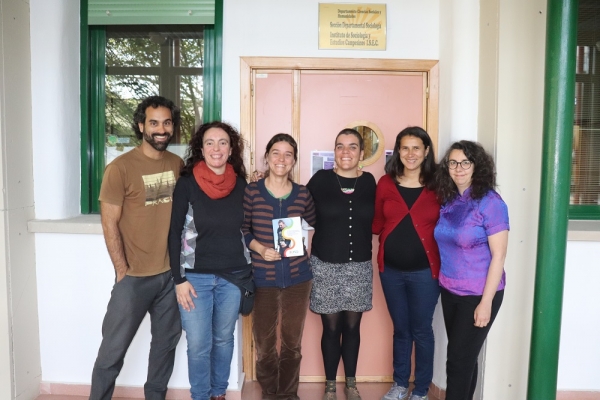One of the keys for a given group to have power and the capacity to decide on what affects them as a collective is organisation. The creation and configuration of networks between individuals often constitute a bulwark so that, in decision-making, there are interests foreign to those of the stakeholders involved do not prevail. As the famous proverb says, there is strength in numbers.
This is the philosophy underlying the European project BOND, an initiative whose purpose is to strengthen collective action and promote association between agrifood entities and communities, to allow them to recover their ability to influence the decisions that affect them. "It is not about forced organisation through a legal instrument, but rather a process of community creation in which the groups involved build their collective identity and design their strategies to defend their interests", underscores Mamen Cuéllar Padilla, a researcher at the Institute of Sociology and Agricultural Studies (ISEC), heading up the project at the University of Córdoba.
One of the great weaknesses of Europe's primary sector, giving rise to the project, is that it is not well organised, a reality that is partly due to the feeling of working alone, due to geographical dispersion. With the objective of identifying these boundaries and promoting the development of farming communities, the project, financed by the European Commission under the auspices of the Horizon 2020 programme, and in which more than thirty countries are involved, works on erecting three fundamental pillars: successful and lasting cases, the diagnosis of barriers, and the designing of tools to overcome them.
According to another of the project's researchers and a member of the UJC's SEJ-179 group, Irene Iniesta, during the first phase of the project 6 field outings were taken in which 60 farmers from more than 30 European countries participated, with the potential to lead processes of collective configuration and action in their different contexts. Over the course of these meetings agricultural cooperatives were visited with an internal design defined by horizontal and participative organisation, cooperatives for the shared use of agricultural machinery, and land banks.
The analysis of these success stories has served to identify the main barriers preventing agricultural communities from generating collaborative networks. According to the first conclusions drawn, these are geographical, cultural and, fundamentally administrative stumbling blocks that often affect small and medium producers more: "much more defenceless before the market and public regulations, designed for the large scale", for which associations could be a viable alternative.
The next step of the project, which will end next year, is to develop an action plan in some of the countries participating in the study based on the results obtained. In Poland, for example, a network of small and medium-sized producers is being designed for the direct marketing of their products, while in Spain there are plans for a meeting that will unite different players in the sector to adapt hygienic-sanitary regulations to the realities of small and medium agro-food producers and processors.
Another contribution by the project will be a practical guide to methods and tools that, responding to the diagnoses made, facilitate the processes for the development of networks in the agrifood sector. In short, the ultimate goal of the project is to contribute to the empowerment of small and medium-sized producers and the democratisation of the sector, so that it has a voice and influence in the decisions that shape its future.
Â


